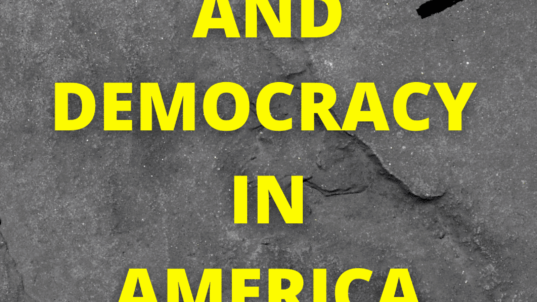
Photo by Stephanie McCabe on Unsplash
We just celebrated Independence Day here in the US. What if it’s our last? Independence Day is more than a celebration of our freedom from another country, it’s a celebration of our democracy. On Independence Day, we celebrate our independence as free and equal democratic citizens to have a say in shaping our society and choosing our elected leaders. Last week, the US Supreme Court announced its intention to take up a case, Moore v Harper, that will create an opportunity for the Court’s conservative majority to test, and most likely validate, the “independent state legislature theory.” If they succeed, this will be game over for democracy in the US. This will be the end of our independence as free and equal citizens in a self-governing society.
In short, the independent state legislature theory would give each state legislature unchecked power over elections, including over elections for federal offices. So, a state legislature would be permitted to gerrymander or suppress votes as much as it wanted, without any possible check from the governor or the state courts. The theory would also allow state legislatures to toss out election results they don’t like and install their own winner(s). This is precisely what former President Trump urged various state legislatures to do in 2020. As we’ve learned from the January 6 Committee, these efforts very nearly succeeded. Now the Court’s conservative majority is signaling that they will help to make this possible in 2024 (we have to wonder, why else the Court would have taken this case if the majority were not interested in validating this theory).
Say, for example, that we have a similarly close presidential election in 2024. Republican-controlled state legislatures could make unfounded claims of electoral fraud (as many did in 2020), and throw out the election results in order to install a winner of their choosing. Of course, this would be easiest in states with single-party rule. But it would work even in states where a Democrat held the governor’s office, since the independent state legislature theory provides for no check by the power of the governor or the state courts.
If the Supreme Court validates this theory, our democracy will be undone, and it’s hard to see how we’d ever get it back again. Democracy is a hard won thing. We have to keep in mind that true democracy has been more aspirational than real throughout US history. A case can be made that only with the 1965 Voting Rights Act did the US truly become a democracy–and that this lasted only about 50 years before the conservatives on the Supreme Court gutted some of the Act’s most important protections in 2013. Since then, we’ve faced an upsurge of voting restrictions along with racial and partisan gerrymandering, all working to move us farther from the ideal of “one person, one vote,” and all weakening the core democratic premise of government of, by, and for the people.
How do we prevent the undoing of our democracy? How do we create a mass movement to restore and revitalize our democracy? History teaches us that democracies can fail from within. Within a democracy, an authoritarian, antidemocratic party can use the levers of democracy to gain power–and then set about dismantling the norms and structures of democracy, transforming into an authoritarian state. By using aspects of an electoral system to impose minority-rule over the population, authoritarian parties no longer need to concern themselves with representing the will of the majority of citizens. In the US, there’s now a growing divide between the beliefs of the majority of the population and the beliefs of the governing minority (consider, for example, the gulf between public opinion and public policy on reproductive rights or gun safety). Across the world we can see the growth of authoritarian parties rising to power and leading to democratic backsliding. How do we stop that from happening here?
As with all complex problems, the first step is recognizing that we have a problem: the US has an authoritarianism problem. The former President attempted a coup, seeking to subvert the 2020 election, which would have shattered any illusion of governing with the consent of the governed. Ever since the coup failed, the former President’s supporters have been working in state legislatures to set in place the policies and candidates that could help a similar attempt succeed in the future. The conservatives on the Supreme Court have signaled that they are now ready to join that effort.
How do we sustain and protect democracy against these efforts? What strategies might work to resist the authoritarianism that is gaining power within our political system? The Interactivity Foundation is dedicated to the work of revitalizing democracy through the practice of collaborative discussion. Key to this work are foundational beliefs that every democratic citizen can contribute to the work of democratic governance and that we can be smarter together.
To begin answering these questions, we are now seeking to connect with other organizations and individuals, whether experts on authoritarianism or simply concerned citizens, to accelerate and enhance learning about the strategies needed in this crucial moment. In the coming months, we will be organizing discussion series to explore these very questions: how we might most effectively resist the growing threat of authoritarianism within our democracy, and how we might best grow and strengthen our democracy now and into the future. Watch this space and connect with us for upcoming announcements and to get involved.


